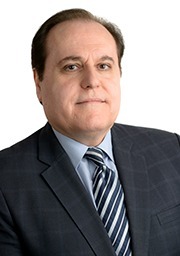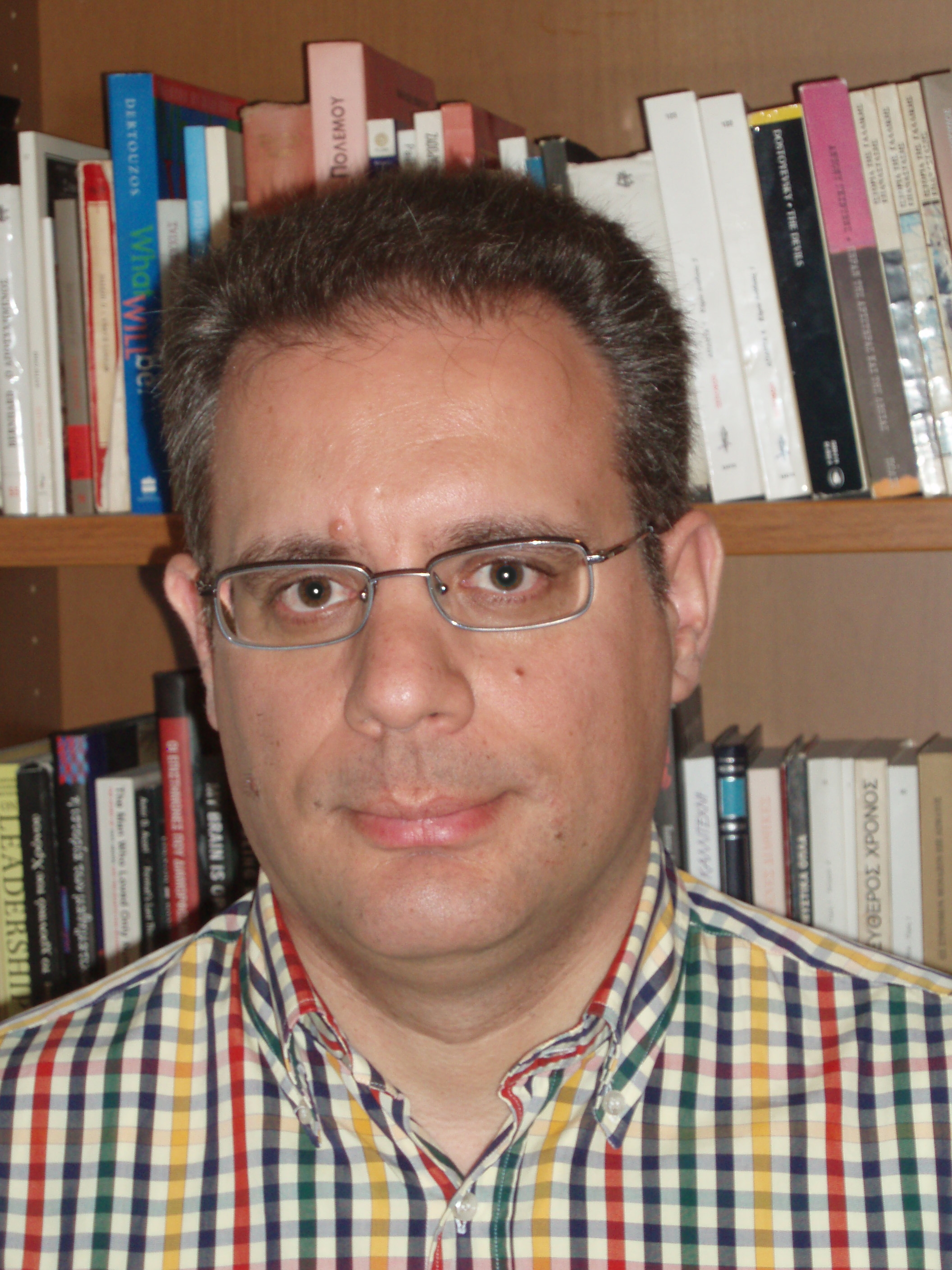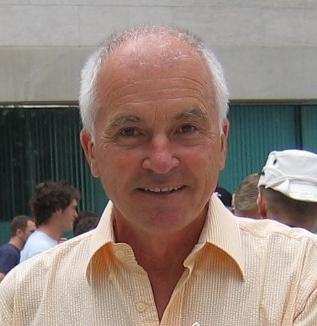20th ACM MSWiM 2017
Keynote Speakers
In addition to scientific papers, the MSWiM 2017 program includes distinguished Keynote Speakers.
Title: Provisioning and Management of Internet of Things Applications: Open Issues and Insights
Albert Y. Zomaya
Professor at University of Sydney
Sydney, Australia
Abstract: Recent technological trends such as Industry 4.0 introduced new challenges that push the limit of current computer and networking architectures. It demands the connection of thousands, if not millions, of sensors and mobile devices coupled with optimized operations to automate various operations inside factories. This led to the new era of Internet of Things (IoTs) where lightweight (possibly mobile) devices are envisaged to send vital information to cloud data centres (mobile and fixed infrastructure) for further processing and decision making.
Current cloud computing systems, however, are not able to efficiently digest and process collected information from IoT devices with strict response requests for two main reasons: (1) the round trip delay between IoT devices to the processing engines of cloud could exceed an application’s threshold, and (2) network links to cloud resources could be clogged when IoT devices flush data in an uncoordinated fashion. Fog and Edge Computing are two solutions to address both of the previous problems. Though designed to alleviate the same problem, they have fundamental differences that make adopting one more applicable than the other.
This talk will overview the practical concerns of today’s IoT implementations through tackling the most important obstacles that hinder their adoption. First, production of applicable network (fixed and mobile) latency models to capture all elements of IoT platforms. Second, building a holistic platform to orchestrate various inter-related layers of IoT platforms, including connectivity, big-data analytics, and workload optimization. Third, proposing viable solutions that can be actually implemented in IoT-based applications. More details will be provided about the above issues during the talk.Short Bio: Albert Y. Zomaya is the Chair Professor of High Performance Computing & Networking and served as Australian Research Council Professorial Fellow (2010- 2014) in the School of Information Technologies, Sydney University. He is also the Director of the Centre for Distributed and High Performance Computing which was established in late 2009.
Dr. Zomaya published more than 500 scientific papers and articles and is author, co- author or editor of more than 20 books. He served as the Editor in Chief of the IEEE
Transactions on Computers (2011-2014) and was elected recently as a Founding Editor in Chief for the newly established IEEE Transactions on Sustainable
Computing. Also, Dr. Zomaya serves as a Co-Founding Editor-in-Chief of IET Cyber- Physical Systems, Founding Editor-in-Chief of the Journal of Scalable Computing
and Communications (Springer), and Associate Editor-in-Chief (Special Issues) of the Journal of Parallel and Distributed Computing. He also serves as an associate editor for 22 leading journals, such as, the ACM Computing Surveys, ACM Transactions on Internet Technology, IEEE Transactions on Cloud Computing, and IEEE Transactions on Computational Social Systems. Dr. Zomaya is the Founding Editor of several book series, such as, the Wiley Book Series on Parallel and Distributed Computing, Springer Scalable Computing and Communications, and IET Book Series on Big Data.
Dr. Zomaya has delivered more than 180 keynote addresses and invited seminars, and delivered many media briefings and has been actively involved, in a variety of capacities, in the organization of more than 700 conferences. Dr. Zomaya is the recipient of the IEEE Technical Committee on Parallel Processing Outstanding Service Award (2011), the IEEE Technical Committee on Scalable Computing Medal for Excellence in Scalable Computing (2011), and the IEEE Computer Society Technical Achievement Award (2014). He is a Chartered Engineer, a Fellow of AAAS, IEEE, and IET. Dr. Zomaya’s research interests are in the areas of parallel, distributed, and mobile computing, networking, and complex systems.
Title: Key Concepts and Algorithms for Wireless Power Transfer in Adhoc Communication Networks
Sotiris Nikoletseas
Professor at University of Patras and CTI
Patras, Greece
Abstract: A Wireless Power Transfer (WPT) system consists of chargers which transmit power wirelessly and receivers which harvest the radio frequency energy from the chargers. WPT has evolved to a very active research subject, as well as a topic of rapid technological progress and emerging practical development and commercial applications. However, a solid foundational and algorithmic framework seems still necessary for WPT to achieve its full potential.
In this respect, the talk aims to discuss different characteristic abstract WPT models (scalar, vector, peer to peer) and present key optimization problems (power maximization, coverage, placement, radiation control). Relevant algorithmic design and analysis methods and performance properties (and their trade-offs) are also provided, as well as interesting WPT notions and concepts (such as super-additive and cancellation phenomena in the received power, notions of electromagnetic radiation control in dense, strong WPT fields and energy-aware distributed network formation in large populations of very weak mobile nodes).Short Bio: Sotiris Nikoletseas is a Full Professor at the Computer Engineering and Informatics Department of Patras University, Greece and Director of the SensorsLab at the Computer Technology Institute (CTI). He has been a visiting professor at the Universities of Geneva, Ottawa and Southern California (USC). His research interests include algorithms for sensor networks, IoT systems and testbeds, wireless energy transfer protocols, probabilistic methods and random graphs, and algorithmic engineering. He has edited 3 Books (on probabilistic methods, sensor networks, wireless power) and over 200 publications, while he has delivered several invited talks and tutorials. He has initiated international conferences on sensor networking. He has coordinated several externally funded European Union R&D Projects related to fundamental aspects of modern networks.
Title: VC Research - What is Missing?
Stephan Olariu
Professor at Old Dominion University
Norfolk, USA
Abstract: Vehicular Clouds (VCs) have become an active research topic. However, even a cursory look reveals that the VC literature of recent years is full of papers discussing fanciful VC architectures and services that often seem too good to be true. It seems to us that promoting VC models without any regard to their practical implementation is casting a long shadow of doubt on the feasibility of those VC models and is apt to discredit the practicality of the VC concept altogether. Part of the problem seems to be that some authors do not seem to be concerned with the obvious fact that moving vehicles' residency times in the VC may, indeed, be very short and, therefore, so is their contribution to the amount of useful work performed. Worse yet, should a vehicle running a user job leave the VC prematurely the amount of work performed by that vehicle may be lost. It is important to recall that the success of conventional cloud computing (CC) is attributable, to a large extent, to the ability to provide quantifiable (i.e., quantitative) functional characteristics such as high scalability, reliability and availability. In conventional CC, cloud service providers have come to equate reliability and availability with customer satisfaction and, ultimately, revenue. By the same token, if the VCs are to see a widespread adoption, the same quantitative aspects have to be addressed here, too. Feasibility issues in terms of sufficient compute power, communication bandwidth, reliability, availability and job duration time are all fundamental quantitative aspects of VCs that need to be studied and understood before one can claim with any degree of certainty that they can support the workload for which they are intended The main contribution of this paper is to maps out directions and challenges related to a quantitative analysis of the performance characteristics of VC architectures and services.
Short Bio: Stephan Olariu received the Ph.D. degree in computer science from McGill University, Montreal, Canada. He is currently a Professor of Computer Science at Old Dominion University, Norfolk, VA, USA. He has held many different roles and responsibilities as a member of numerous organizations and teams. Much of his experience has involved the design and implementation of robust protocols for wireless networks and their applications. He is applying mathematical modeling and analytical frameworks to the resolution of problems ranging from securing communications to predicting the behavior of complex systems and evaluating performance of wireless networks. His most recent research interests are in the area of vehicular clouds.


